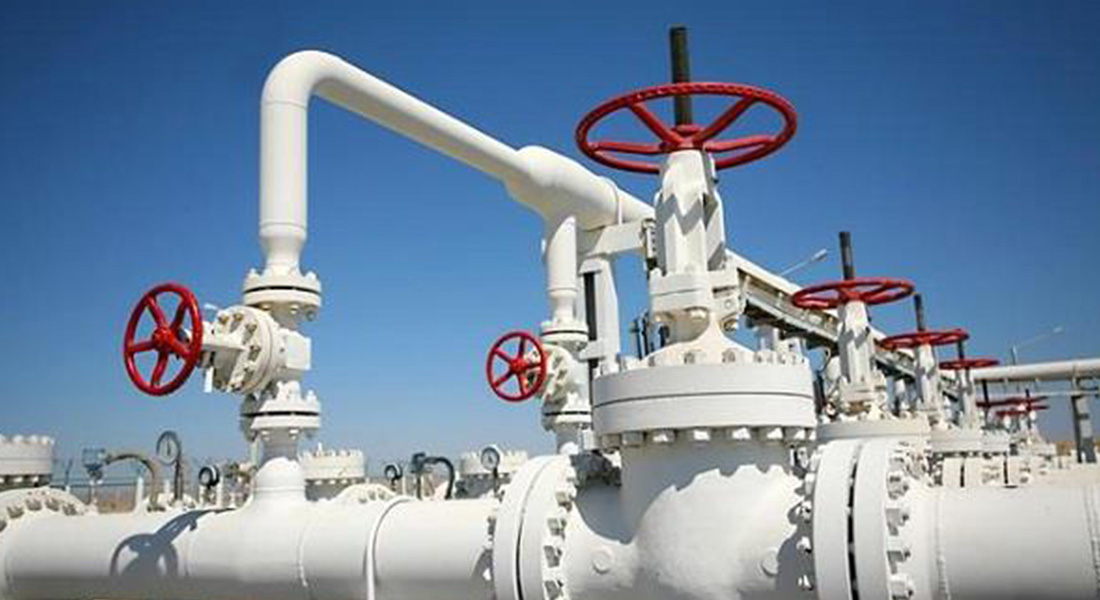Declining gas reserves in Europe…a severe crisis with positive consequences for the Middle East and North Africa
January 5, 2025

The European continent is facing a severe energy crisis that raises concerns in light of the unprecedented decline in natural gas reserves, at a time when it is struggling to adapt to geopolitical challenges and coinciding with the onset of winter, and the decline in dependence on Russian gas as a result of the war in Ukraine and the imposed sanctions.
This crisis comes at a time when European imports of seaborne gas are declining, which increases the complexity of the economic and social scene in the European Union countries, bringing to mind the energy crisis that struck the continent about three years ago, and posing strong challenges that require more alternatives and quick solutions.
According to a report by the British newspaper “Financial Times”, the European Union is emptying its gas storage facilities at the fastest pace since the energy crisis three years ago, with demand rising due to cold weather and a decline in seaborne imports.
This is confirmed by data from the European Gas Infrastructure Foundation, which revealed that the volume of gas in gas storage sites in the European Union decreased by about 19 percent since the end of September, when the refilling season in gas markets ended, until mid-December ( December).
Crisis and expected rises
Consumers and companies in Europe face increasing economic burdens with natural gas prices rising by 47 percent this year, and with the possibility of Russian gas flows stopping at the beginning of 2025.
According to Bloomberg International, there is already an increase in futures prices, and some traders point out that stopping gas pumping from Russia could lead to prices rising by about 10 euros per megawatt-hour compared to prices if pumping continues as usual.
In response to this, Nihad Ismail, an expert in energy economics from London, said in exclusive statements to “An-Nahar” that the Russian invasion of Ukraine in February 2022 brought about a major change in global energy markets, especially with Russia using the export of natural gas as a weapon and the decline in gas imports. Russia and the sanctions imposed on Russia by the European Union and the United States, which led to Europe moving towards diversifying energy sources and building facilities and infrastructure to receive liquefied natural gas from the United States, and from sources Others such as Egypt, Qatar and Kazakhstan.
He added that with the decrease in inventories and the entry into a harsh, cold winter, Europe is facing a real crisis in terms of high prices, lack of supplies, and decreasing stocks, and this will lead to higher prices.
He pointed out that the crisis facing Europe is not catastrophic either due to the presence of sources for supplying liquefied natural gas from Norway and the United States, but there is still a state of anticipation with the arrival of the new elected President of the United States of America, Donald Trump, and the possibility of a breakthrough regarding the supply of Europe’s gas requirements, after it imposed… The Biden administration imposed restrictions on production and exports to protect the environment and climate.
New alternatives
In light of this reality and the requirements of searching for quick alternatives, the attention of the European continent is turning during the current stage to the Gulf and North African countries, which are expected to play a pivotal role in compensating for the European shortage by increasing their energy exports.
According to a number of experts and economists in the field of energy, in statements to “An-Nahar,” these transformations are not limited to the economic aspect that is expected positively regarding the shift of the compass of Europe’s interests to the Gulf states and Africa only to compensate for the lack of its reserves, but they also carry strategic repercussions that may reshape the map of international relations. And global energy markets in the coming period.
Experts expected that a number of countries in the region would benefit and record a boom in their export activity to Europe, such as the UAE, Qatar, Algeria and Egypt.
This is confirmed by expert Ismail, regarding the repercussions and consequences of the crisis on the Middle East and North Africa region, which will be positive in light of the shortage of supplies and the search for quick alternatives to confront the challenges of declining inventory.
He added that the UAE, Qatar and Egypt are expected to increase their export pace to Europe in the coming years to meet these requirements, in addition to other countries in North Africa such as Algeria, which currently export through existing pipelines.
He expected that the export activity of these countries would strongly support their growth rates during 2025, and increase foreign investment flows to them.
Gulf and Europe
The professor of economics and energy, Dr. Wafa Ali, agrees with the expected returns for the region, in special statements to “An-Nahar” regarding Europe’s current tendencies to search for its economic interests and shift its compass towards the Gulf states and North Africa, to save what can be saved in light of the consequences of the Russian-Ukrainian war and the diminishing supplies. Inventory declined.
She added that the European continent’s trends will undoubtedly have a positive impact on the exports of a number of Gulf countries and the region, in light of the continent’s requirements and the cessation of Russian gas pumped through Slovakia via Ukraine, expected at the beginning of the new year, and amid Trump’s warnings that directly affect gas prices.
She indicated that the issue of the conflict over energy will not stop even with the end of existing conflicts and wars, in light of the European Union’s long-term plan to dispense with Russian gas, stressing that evidence from the European scene indicates that geopolitical risks and energy supply disturbances are still open and full with falling temperatures and expectations of increased demand. On the gas.
She explained that the erratic behavior of the markets and the policies of Donald Trump will support the European gas compass’s orientations in the next stage towards the Gulf countries.









